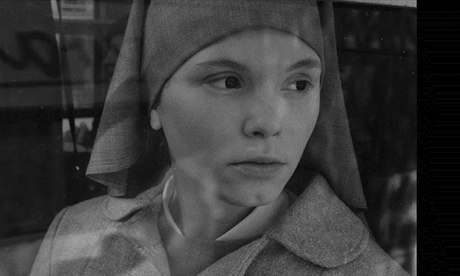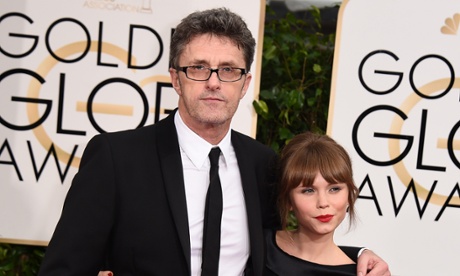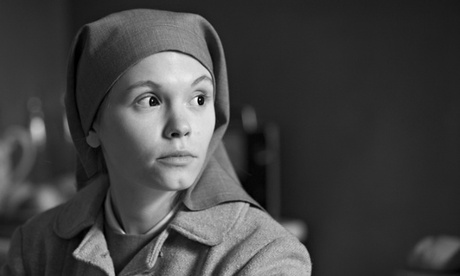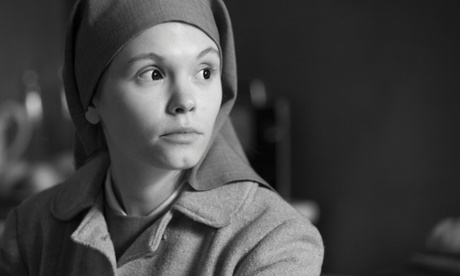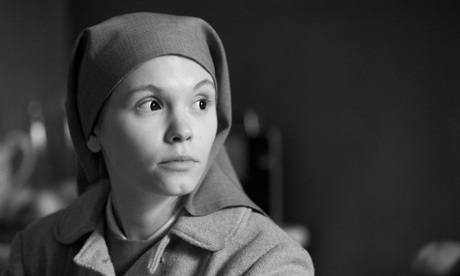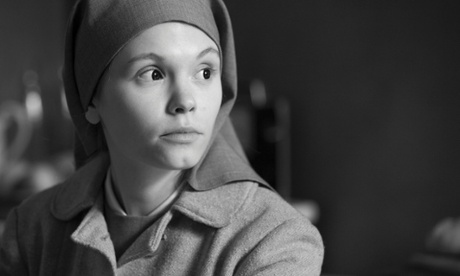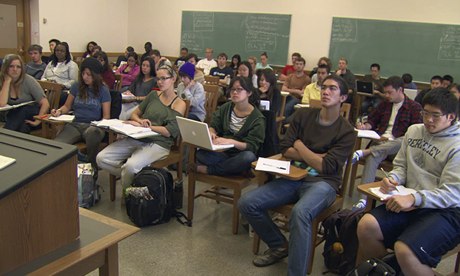The Polish-born director Pawel Pawlikowski grabbed our attention at the beginning of the last decade with two brilliant and intensely English contemporary pictures: Last Resort (2000) and My Summer Of Love (2004). Now he has returned with an arresting period movie from the heart of postwar Poland – and from his own heart, too. Every moment of Ida feels intensely personal. It is a small gem, tender and bleak, funny and sad, superbly photographed in luminous monochrome: a sort of neo-new wave movie with something of the classic Polish film school and something of Truffaut, but also deadpan flecks of Béla Tarr and Aki Kaurismäki.
It is the early 1960s, but in the freezing countryside of central Europe it could as well be the 1860s or 1760s. Newcomer Agata Trzebuchowska plays Anna, a novice nun about to take her final vows in a convent where she was left on the doorstep as an baby in 1945 by persons unknown. But Anna has one surviving relative, with whom she is encouraged to make contact, before she makes the irrevocable decision. turns out to be her aunt, Wanda Gruz, tremendously played Agata Kulesza: a worldly hard-drinking woman who lives on her own, and who is evidently something of an embarrassment to the authorities.
Wanda was once a high-flying state prosecutor and former zealot of the communist state who, owing to misdemeanours, is reduced to being a magistrate, judging petty quarrels between neighbours. Drunken, bleary Wanda reveals the truth to her niece: Anna's first name is Ida and she is Jewish. Now Ida and Wanda – the oddest of couples making the most daunting of road trips – must set out to discover what happened to Ida's parents during the war. It is a trip that Wanda has clearly been delaying – and dreading – because it will reveal a great deal about her own disordered emotional state.
Ida is a drama that obliquely but candidly addresses the issues of Polish catholicism, antisemitism, the church and the state. Ida is someone whose nun's habit enforces a reflex respect from those she meets: she is aware that this is something not to be renounced lightly, and the idea of renouncing it in favour of Judaism is an ever-greater wrench. She and the other noviciates are in one scene shown face down on the ground in the traditional attitude of humility and self-abasement, a face-down inversion of the crucifixion pose that paradoxically suggests sensational importance and prestige.
On their travels, Ida and Wanda pick up a hitchhiker, a jazz saxophonist (Dawid Ogrodnik) with an obvious crush on Ida who introduces them to the music of John Coltrane, and to a new world of racy late-night clubs and the first, prehistoric stirrings of 60s youth culture. Yet the end of the war was only the day before yesterday. In fact, the war has not ended for Wanda, who knows well that there were some Poles whose instinct was to collaborate, denouncing the Jews in their midst. Others helped them, hiding them away. There were yet others whose attitudes were ambiguous, who hid Jews, then felt progressively panicky about the risks they were taking. With her prosecutor's instinct, Wanda knows who these people were, and who will tell her the truth about Ida's mum and dad.
The relationship between Ida and Wanda is elusive: roommates, aunt and niece, quasi-mother and quasi-daughter. Their generational gap seems unbridgeable, as does the gap between those who lived through the horrors of war, and the new, lucky generation coming of age in times of relative peace. In a very short time, Pawlikowski's film tells us a powerful, poignant story with fine, intelligent performances from Kulesza and Trzebuchowska.
